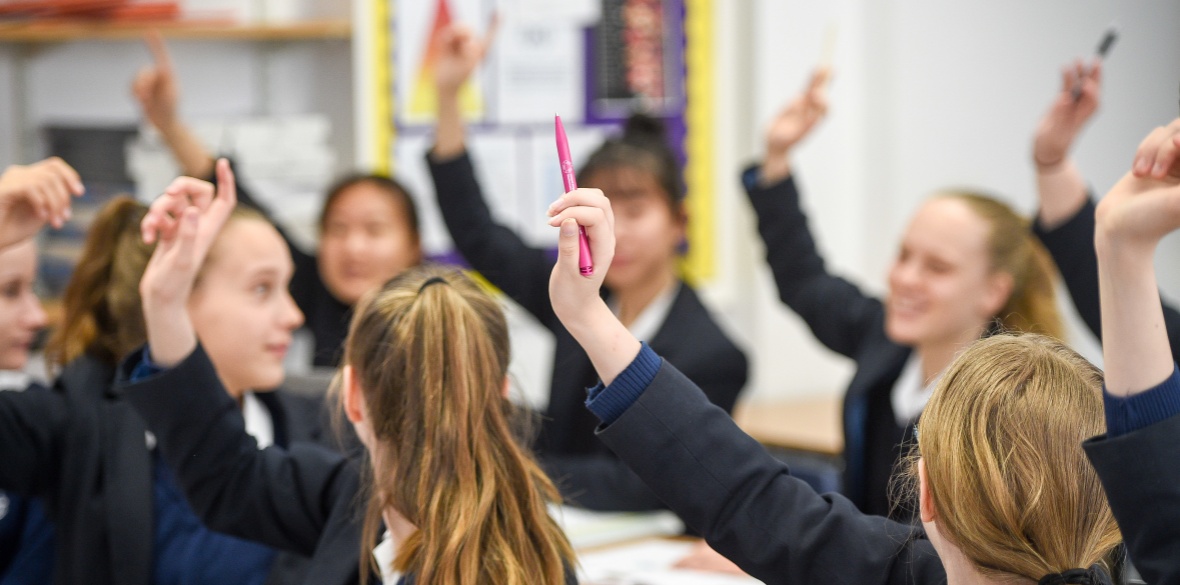This is the last article you can read this month
You can read 5 more article this month
You can read 5 more articles this month
Sorry your limit is up for this month
Please help support the Morning Star by subscribing here
AN increasingly popular classroom session in secondary schools and sixth-form colleges is teaching children about trade unions.
The national programme run by Unite the Union teaches 15 to 18-year-olds how trade unions work to improve the pay and conditions of their members as well as protecting them against discrimination or bullying.
London & Eastern community and Unite in Schools co-ordinator Vic Paulino says: “When we go there and ask them if they have ever heard of a trade union, none of them know what a trade union is. Not one of them it is just ridiculous that we don’t have that in our curriculum.”
However, the Unite in Schools programme ticks part of a GCSE component regarding pressure groups/trade unions and lobbyists.
Paulino says: “If you ever feel apathetic or feeling like there is no hope for the future, the school sessions make you come out feeling so good.”
Paulino goes on to say: “It’s important they know what trade unions are about and the history of trade unions. A lot of them don’t know or understand that they are only at school because of trade unions because back in the day they would be working down the mines.”
One of the videos that can be shown in these hour-long tutorials is about kids working in factories at the ages of nine and above.
Paulino adds: “We emphasise that if it wasn’t for trade unions, we wouldn’t have weekends, wouldn’t have all these benefits or the NHS. It is really important they understand that.”
These kids are facing the worst working conditions in generations and it is vital that they know what their collective solidarity can do to help each other obtain fairer pay and conditions.
Attending a Unite in Schools class, the speaker Maria McCaul asks the kids a series of questions and gets them to think critically about why trade unions could be relevant to them.
Instead of being spoken to for an hour, the kids are teaching themselves and joining in a debate and discussion about working life and campaigns to improve their lives.
A video of Unite’s Sports Direct campaign is made the main emphasis of the class and the response from the kids is positive when they see how badly the workers were treated and the successful results of collective action.
The class also teaches children about their employment rights, what rights they have at work, health and safety, equal rights and equal pay.
The speaker will also discuss what trade unions have brought into the workplace and if they are ever in trouble who they can go to.
At the end of the session McCaul asks the class: “How many of you will join a union when you start work now that you have learnt about the work they do?”
The entire class raises their hands. Walking out of that classroom, having listened to those 17-year-olds intelligently debate and discuss campaigns and working rights, it is difficult not to smile and realise there is hope for the future.
Paulino, who also goes to schools as a Unite in Schools speaker, says: “I like to think that all the energy we put in there that one day out of this we will have sown a seed in their head and one of them will become a Len McCluskey and we absolutely want to increase trade union membership and this is one way of doing it.”
In the school term, 2016/2017, Unite in Schools in the London and Eastern region taught just 3,010 young people about trade unions that figure has grown year on year in the term 2017/18 that number grew to 7,713 and the most recent term, 2018/19 saw that figure grow again to 9,777 young people.
National co-ordinator for Unite in Schools Mary Sayer emphasises how important it is that we listen to young people to learn from them about what they want their trade unions to do for them in order to keep trade unions relevant.
She says: “Unions need wider representation, they need more young members, more women, more BAME and more LGBT activists.”
Statistically Unite the Union can’t see whether this course is increasing the young membership of the union but Sayer spoke about how a daughter of one of the Unite in Schools tutors has now become a tutor herself and Paulino spoke about a young man that had joined the union as a result of one of the tutorials.
Unite the Union isn’t doing this to increase membership — its aim is to educate young people so that they know their rights and understand how to protect themselves from employers like Mike Ashley.
That is reward enough for the Unite in Schools programme and gives us all hope for the future trade union movement.









